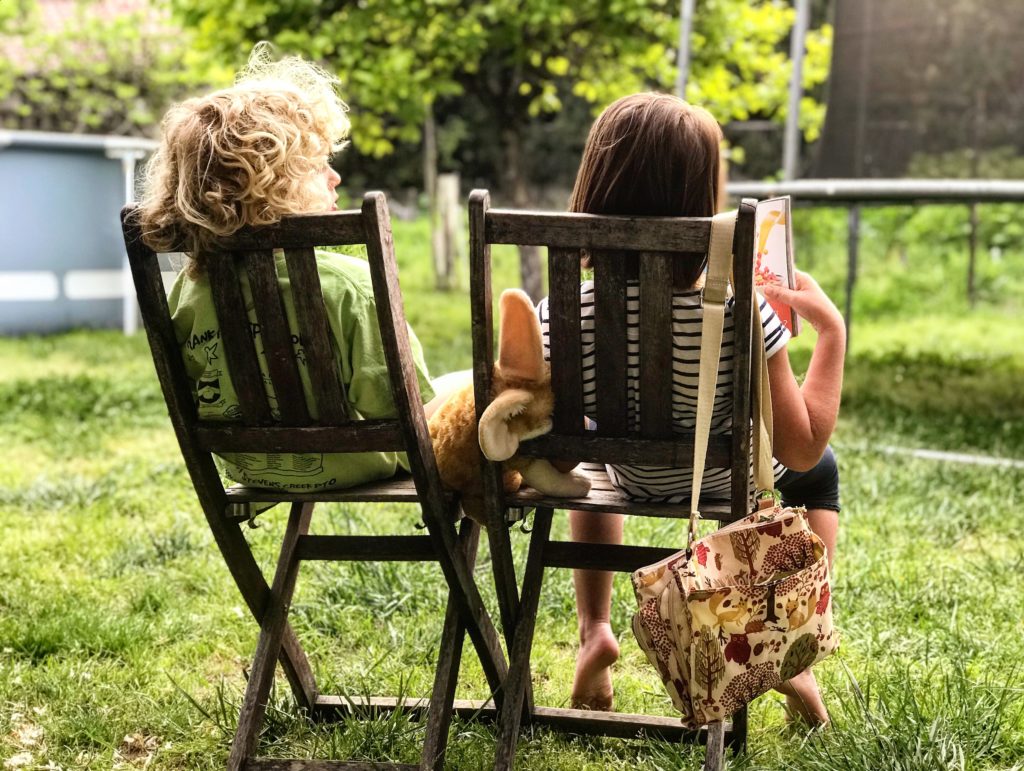From the desk of Linda M. Rio, M.A., Marriage and Family Therapist and PWN contributor.
I
recently met with someone diagnosed with a pituitary tumor who inspired me to write about this topic. I realize that even though I have written and spoken about the role for children in the “system” of a pituitary patient’s life, I may not have thoroughly addressed enough specifics that may be helpful. I will attempt to highlight the little ones’ needs here.
As a Marriage & Family Therapist (MFT) I have specialized in working with children, adolescents, and their families. In working with young children, it is best to use play as a method to not only allow the child to communicate but also as a tool to help them heal. The younger the child is, the more necessary play is because language, words just are not adequate. And one of the more difficult parts about working with children is that it isn’t always easy or apparent what emotions may be troubling them, but a loving, open and trusting relationship with a caring adult can provide the child with what is needed to heal and play is the child’s medium for communication. The adult can be a trained therapist, but parents and other caregivers can also employ methods that work therapeutically. People not trained in child development may believe that because a child does not ask or speak about their worries that they have none. Not true. My clients who are parents have told me they believe their children do not know about whatever troubles the parents may have. Not true. I have witnessed even very young toddlers having an incredible perception of what is going on in their families. Children see and hear but often do not let their parents and other adults know what is inside of them.
I remember quite vividly having a young mother in my office years ago who was emotionally distraught. She could not find child care for her 14-month-old daughter, so she brought her to her therapy session. I witnessed the baby who was hardly walking find the box of tissues, climb up her mother’s lap and dab the tears from her mother’s face all without the mother having a clue as to the significance of this behavior. That baby was intensely aware of her mother’s pain and also felt the need, the drive to try to “fix” her mother. This is what children do; they perceive then try to make things better, in their limited ways.
This is what children do; they perceive then try to make things better, in their limited ways.
Numerous studies have been done documenting the effect of chronic and/or serious physical illnesses on the family. To my knowledge, there are no studies explicitly targeting families who have someone with a pituitary disorder but believe such research would be worthwhile. The research does, however, show that any family who has a significant health issue often has a higher incidence of conflict. If the health issue is prolonged, then other family members may also begin to show physical and/or emotional changes. There can also be positive changes that can occur showing resilience to negative stress and the ability of a family to adapt, change, and grow. This is, of course, the ideal situation and one to strive toward. I will present just a few ideas for parents and other caregivers to use with their children when one of the parents has been diagnosed with a tumor or other pituitary disorder.
1 – Presume that the children/adolescents know something is wrong. You likely don’t have stupid children. But, it is also possible or even likely that they believe they have done something wrong or it is their fault so it is essential to set the record straight (although they may not believe your words at first).
2 – For young children read books about the illness of a parent. Drawing with them is also an awesome way to “hear” what is inside of them. You can ask a child to draw the tumor, or what it is like to have a tumor.
3 – For adolescents and older children, I find that it is still helpful to use the children’s books. What I have found helpful is to sit with the older child and “ask for their help or advise.” Say something like, “I found this little kids’ book to explain what is going on with me to your younger sister/brother/nephew/cousin, etc. I wonder if I could first read it to you and get your opinion about whether you think it would be a good one to read to them?” This accomplishes several things 1). Allows the older child to feel like you trust them enough to give advice, 2). Provides soothing words and images to the older child’s more vulnerable self that they cannot show without feeling babyish (saving face), 3). Gives the parent a tool to communicate tough stuff with a child whose age can be difficult in the best of times.
4 – Use drawings from the internet or from brochures your doctor may have provided to help explain the basic biology of the pituitary. Your children will thank you when they ace their high school biology test!
5 – Ask what questions they have. Give them time. They may not have immediate questions so be prepared to answer questions later.
6 – Be honest about your feelings. It is OK to show emotions with your children as long as you can assure them that all feelings are important and that you/the family will find a way to get through this together.
7 – Play games. Yes, there are games that encourage families to talk (without the use of texting). There are games that are even designed for families with illness.
8 – If your children ask at any time how you are feeling, tell them. You do not, however, need to go on and on.
9 – Anger. If you are angry, even rageful, it may be helpful to develop a code word that just the family knows. It could be something like, “Daddy is a tiger right now.” What that means, in shorthand is, “Daddy’s hormones are out of control, and he’s feeling angry for absolutely no real reason, and the hormones make him want to scream, yell, throw things…but instead, he is going to go for a long walk (or to his room, or to the gym, etc.). His behavior has absolutely nothing to do with you/us so we need to support him and do something nice for ourselves until he can get back to being daddy again.” The idea is to explain this to the child (can work for spouses or significant others too) then all you have to do is say “tiger,” then leave. In the throes of the moment, the fewer words used, the better. Later, once calmer, you can say something like, “Wow, that tiger came out suddenly,” or “I don’t like being a tiger so I’ll bet you don’t like having one around, do you?”. Just acknowledging an episode for what it is instead of trying to hide it or everyone pretending it didn’t happen only causes all to hurt even more.
10 – Sadness/depression. Depression can be so difficult as a parent because it zaps all physical and emotional energy and certainly prevents you from being the parent you want to be. Some of the same guidance, however, applies as in the advice for anger above. There are books for children about having a parent with depression that focuses on explaining, “Mommy/daddy love you but can’t show it right now…and hopefully, there will be a time when they can”.
11 – Consider starting a diary or journal of your experience with the intention of one day sharing it with your children when they are grown. In this, you can write the emotions and thoughts along with factual medical information that they are too young to understand, which can give you a place to release emotions along with the hope that your children will one day be able to understand better.
12 – Use toys with small children to give them tools to communicate what it is like for them to have a parent with a pituitary disorder. Sitting on the floor, first observe, really observe what the child is playing. You can initiate an interaction by picking up one of their figurines and saying, “Oh, which one is the “tiger” daddy and which is the nice one?” It will be important not to be judgmental and allow the child to lead the play. You can even try asking, “What do you think we should do to the “tiger” daddy?” or “Where should the tiger go where he will be safe…the forest…outer space….etc.”
13 – Family Therapy can involve all ages and can be a wonderful help to get things started, especially for parents who find it hard to talk with their kids about hard things. A specially trained therapist can provide not only a safe and secure environment but also communication tools for all ages to use.
14 – The most important thing when being with a child/adolescent is to let them know you hear them, really listen to them and that they will not be in trouble for sharing. After all, most parents tell their teens that they can tell their parents anything. And, most parents expect their kids to be honest. But how can we expect this if as parents we are not prepared to do the same? Having a pituitary tumor or other pituitary disorder can be hard. Life can be hard, but as adults, we have to lead by example and do the hard stuff if we ever hope to have a truly great relationship with our children. Dealing honestly with the hard stuff of life can lead to some intense connections with those we love.
Our thanks to Linda Rio, Marriage and Family Therapists, for providing this critical information and being a valued contributor to our publication. Read Linda’s past articles on PWN and learn more at her website at www.lindamrio.com .
 Linda M. Rio, M.A., LMFT is a PWN contributor and author. Her latest book “The Hormone Factor in Mental Health” is available through Amazon.com and other major booksellers.
Linda M. Rio, M.A., LMFT is a PWN contributor and author. Her latest book “The Hormone Factor in Mental Health” is available through Amazon.com and other major booksellers.
photo by Max Goncharov
© 2018, Pituitary World News. All rights reserved.
